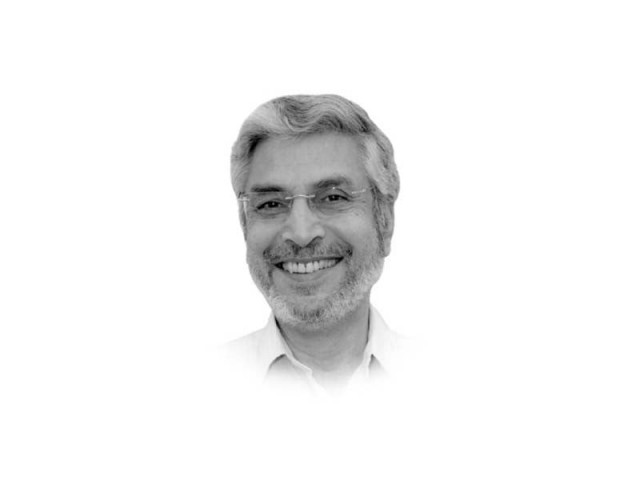The authoritarian mind and politics
Rather than focussing on their own capabilities and performance, authoritarian types are eager to undermining others

A major gap in the analysis of Pakistani politics is inattention to the psychological wellsprings of the behaviour of the ruling elites, which is variously understood to include most of the higher officials of the armed forces and the bureaucracy, political leaders, intelligentsia, and the moneyed classes. To address that gap, the concept of authoritarianism can be usefully employed. The term was articulated in the early 1950s to understand the rise of the Fascist and Nazi phenomena.
In the political sense, authoritarianism is used to refer to a system of government where an individual or a group rule without a legitimate popular mandate. That is, they come and stay in power through means other than the electoral process, or a faux electoral process, or through collusive use of administrative power. However, that is a separate topic, and our focus is on the psychology of authoritarianism and its impacts on politics.
Psychologically, authoritarianism refers to a constellation of personality characteristics along a continuum. The behaviour of most of our ruling elites shows that the hallmark of their personalities is authoritarian. Although there are individual differences in that regard, most fall within the composite profile, and readers can decide to whom the description is applicable and to what extent.
An umbrella characteristic of the authoritarian type is that they are psychologically or inwardly insecure but unaware of that, and the wellspring of much of their behaviour is to deny (‘defend against’, in psychological terminology) that deep insecurity. Further, they have difficulty recognising and accepting negative feelings like weakness, passivity, fear, aggression and sexual impulses — something that nevertheless affects their thinking and behaviour. Their self-image lacks objectivity, and they create an ‘ideal self’ that by and large does not correspond to their actual personality make-up.
They perceive themselves to be highly moral, are self-righteous, and sermonise frequently. They are conventional and conformist in their values, and external criteria are used to appraise others and themselves, which becomes the basis of a strong need for a hierarchical status-quo, which makes them feel secure for ‘being like the others’. Authoritarian individuals are highly deferential to those who are higher-up in the social hierarchy and oppress those lower on the totem pole. They glorify willpower, indulge in self-praise and boast about their abilities to overcome all obstacles. Failures are projected and others or external conditions are held responsible. The tendency to externalise failures reduces the deployment of energies on self-examination and learning from their mistakes. Additionally, the insecurity underlying assertions of strength and infallibility manifests itself in an exaggerated desire for money and property, which are seen as extensions of the self, become ends in themselves and are pursued relentlessly and are insatiable.
The thinking of the authoritarian type is rigid and accompanied by the inability to tolerate ambiguity. People and events are seen in pure terms, and everything is black or white, good or evil. They have an inflexible set of conventionalised rules by which they categorise and conceptualise their own and others’ behaviour. This rigidity not only affects their interpersonal relationships but also their cognitive processes and there is a generalised tendency to impose preconceived and stereotypical categories on experience. The inability to tolerate ambiguity, coupled with cognitive inflexibility, undermines their symbolic capacities and they take the most literal, narrow and dogmatic view of things. This in turn is tied up with taking positions and making decisions without any concern for evidence, as well the acceptance of such explanations.
Attainment of political power is the primary consideration for the authoritarian type, and they have no compunction trampling the constitution, law, social norms, and the life, liberty, and rights of the people towards that end. These strivings are usually projected onto others and all politics is seen as a ruthless struggle without any rules, and they feel constantly under threat of political opponents. Opportunism is the basis of all their relationships, which are seen only in terms of their utility and the personal benefit one can squeeze from them. Through the process of projection, they conclude that that is the basis on which everyone relates. Thus, for them, in every relationship each is trying to exploit or get the better of the other. Even work is seen as one mode of this struggle, where superiority over others is the main goal and work has no value in terms of achievement of purposes, fulfilling responsibilities, intellectual growth, or the realisation of productive capacities. Success is seen to be a function of the exploitative capacities of an individual and there is a constant struggle to get into positions of power through whatever means. A somewhat paradoxical result of this is that the authoritarian types, rather than focussing on their own capabilities and performance, are eager to undermining the other (leg-pulling in common parlance), usually through below-the-belt personal attacks and calumny.
Although the focus has been authoritarianism in the ruling elites, it needs to be said that that psyche is the bane of much of our population, which results in perpetuation of the authoritarian personality. However, one must avoid condemnation and instead try to develop an understanding of the phenomenon, after which the beginnings of the way forward may be possible.
Published in The Express Tribune, March 5th, 2023.
Like Opinion & Editorial on Facebook, follow @ETOpEd on Twitter to receive all updates on all our daily pieces.
















COMMENTS
Comments are moderated and generally will be posted if they are on-topic and not abusive.
For more information, please see our Comments FAQ